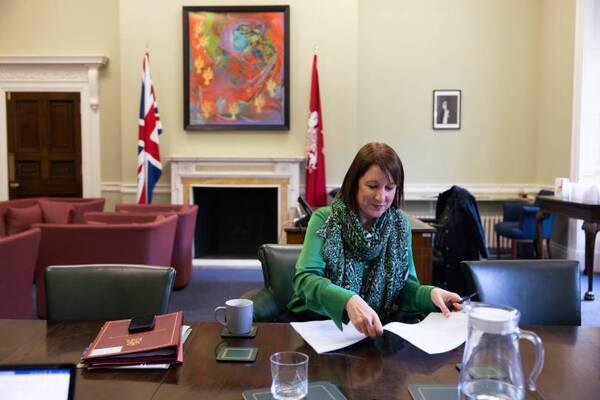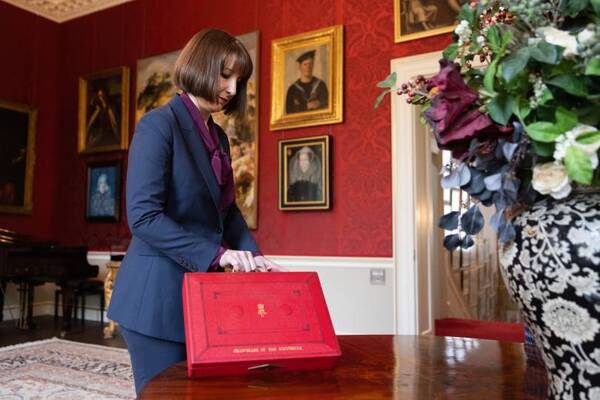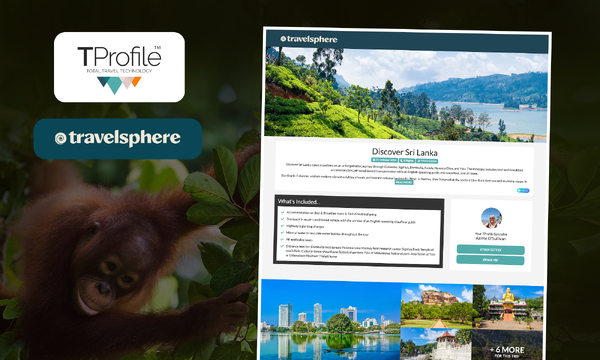Just how much will the Budget cost the travel industry?
Labour’s first Budget since taking power has left businesses reeling, and travel was no exception. So to what extent could the reforms hamper growth for agents and suppliers? The TTG news team reports.
The number crunchers have done their job and the industry has digested the new Labour government’s first Budget. Broadly speaking, it brings increased costs for employers, but there is help on the horizon for the high street.
Some, though, remain distinctly unhappy, like Advantage Travel Partnership chief executive Julia Lo Bue-Said. “You’ll need to find something like £900 per person extra in costs on an average wage to absorb it,” she forecast.
“If you have an average four shops and 20 staff, National Insurance and National Minimum Wage will cost £70,000 [extra] without any growth. If you think about the margins this industry works on, it has to come from somewhere – it will be the difference between turning a profit or not for a lot of businesses.”
Jet2holidays chief executive Steve Heapy was similarly blunt. “It is going to cost us and every other airline and operator lots of money,” he said, speaking to TTG after Jet2.com confirmed it would open its 13th UK base at Luton airport next year.
Just over a week later, in a half-year trading update, Jet2 estimated a £25 million a year hit in extra staffing costs as a result of the Budget, while Hays Travel is looking at a £6 million hike.
Barrhead Travel president Jacqueline Dobson is another critic. “The Budget really did not offer much for businesses across all industries,” she said. Dobson added Barrhead “can still focus on growth”, but Lo Bue-Said warned agents must think carefully about the future.
“For a lot of our members, it will create a real conflict of decision around increasing costs just to stand still versus any potential investment, whether that’s in premises or staff,” she said, adding: “I’ve not had anyone say I’m not going to open more shops, but it’s a time for reflection.”
Recruitment experts don’t predict fewer firms seeking new staff. “We haven’t heard from any companies considering this, but it could potentially become the case,” Barbara Kolosinska, managing director, C&M Travel Recruitment, told TTG.
One consequence may be how firms employ their teams. “We could see some companies taking on more self- employed staff,” said Kolosinska. She warned against commission-only roles, telling employers “they simply won’t find qualified employees willing to take these positions”.
Kolosinska also allayed fears staff could be forced into new roles. “Transitioning staff to self-employment would be very problematic because there are many contractual and legal consequences.”
However, some legal experts believe self-employment could increase. Travlaw partner Ami Naru said: “It’s not a new concept in travel to have self-employed divisions. I think these divisions will expand. The travel industry is on the front foot compared with other industries.”
However, she warned: “I do think we need the government to provide guidance about when a worker is self-employed.”
Kolosinska added the increase in National Living Wage was a positive. “As an industry, we talk about the fact pay is too low in travel,” she said. However, another HR professional, Claire Steiner, said this was “a double-edged sword”. “Travel is perceived to be a low-paid industry,” she added. “However, we’ve been hearing from some SMEs that the increase in costs will affect recruitment and growth plans.”
What are the potential negatives for travel?
- The threshold at which employers start paying National Insurance has been lowered from £9,100 to £5,000
- NI rates have increased from 13.8% to 15%
- The minimum wage will rise next April
- Air Passenger Duty has been increased by £2 on most short-haul flights
- Corporation tax will remain at 25% until the next election, although this is low compared with other economies
- No changes have been made to VAT rules for inbound passengers
From the shop floor, agents’ views are mixed. “We’re considering how to grow at the same rate as we planned because we’ll have to pay more bills,” said Beverley Travel’s Kelly Cheesman, adding the Budget “would affect everything”.
Jennifer Lynch from Worcester agency ArrangeMy Escape is also cautious. “If we were going to expand, I’d really have to think about whether it’s worth it because we’re having to pay a lot more in taxes,” she said. “I’m definitely not [currently] looking to expand or recruit.”
However, Shevaun Joy, co-owner of Destination Travel, which recently expanded to a second store just over the border in Lancashire, said: “I wouldn’t say we’re having to think twice about expansion. If we’re going to go for three staff, we may only go for two because of the minimum wage hike, but if you’re productive as a business, it shouldn't be too much of a problem.
“I don’t think we will recruit more homeworkers because of the Budget. The shop is always busier of the two.”

Dundee-based Hays Travel franchisee John Stewart, who recently opened a third shop in the Fife town of Cupar, was also upbeat. “Our growth will take care of any additional costs we face.
"The Budget hasn’t deterred me at all. In fact, we’re increasing staff we employ across our three stores. Our costs will go up, but we will grow and adapt to ensure revenues cover [them].”
The ex-Cook top seller who became Hays Travel's biggest franchisee
He added he had not been deterred from hiring trainees. “Young people joining our business are the future. If you stop [giving them a chance], you don’t have a future.”
Barrhead’s Dobson also pledged her commitment to younger workers. “Nothing changes our commitment to apprentices,” she said. “We’ve already planned our intake for 2025.”
Rates reform
Days after the Budget, the government passed business rate reform through parliament. Details will come in the 2025 Budget, with promises of “permanently cut” rates from 2026.
James Murray, exchequer secretary to the Treasury, warned the system “cannot be transformed overnight”. In the interim period, the relief introduced during the pandemic, worth up to £110,000 per annum, will fall from 75% to 40%.
Powers to set business rates are devolved to Wales, Scotland and Northern Ireland, but Murray said reform would benefit high streets “across the UK”.
'There were some sweeteners': Budget 2024 at a glance
That could be good news for Scotland. “There’s some light relief with the business rates reduction in England, but retailers have been campaigning for full reform for years,” said Dobson. “We have to understand what the long-term plan is from 2026 as a matter of urgency.”
Murray said the government “intends to give the biggest cut to those with a rateable value fewer than £51,000”.
What are the potential positives for travel?
- Business rates will be reformed, with high street shops set to be given discounts
- SMEs will see the Employment Allowance increase from £5,000 to £10,500
- The threshold at which employees pay income tax and National Insurance will move in line with inflation from 2028, ensuring fewer are dragged into higher rate bands
- Inflation is forecast to average no more than 2.6% until 2029
For anyone thinking of selling up, there is also reassuring news. Pre-Budget fears about tax rises led to a flurry of mergers and acquisitions. But Deborah Potts, director of Summit Advisory, which sealed three deals in October, said: “The rise in Capital Gains Tax was nowhere near as high as sellers feared.”
For the vast majority not throwing in the towel, there are other reasons to be cheerful. Interest rates have fallen, while inflation is forecast to average 2.6% by 2029, although a sharp rise from 1.7% in September to 2.3% in October – reflecting the pre-Budget period – was a surprise.
Council tax, meanwhile, will go up by a maximum of 5% next year, with the existing cap remaining. All this matters as to how the industry fares because, in the end, its success comes down to how good the consumer feels.
Sign up for weekday travel news and analysis straight to your inbox

Gary Noakes

James Chapple

Ilaria Grasso Macola

Harry Kemble
Supplier Directory
Find contacts for 260+ travel suppliers. Type name, company or destination.














